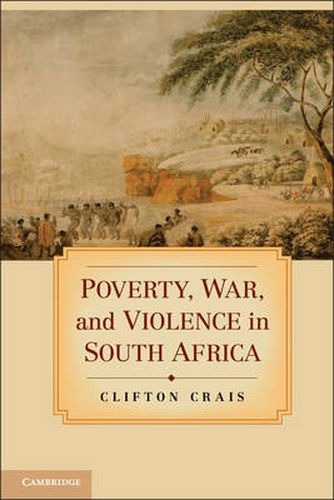Readings Newsletter
Become a Readings Member to make your shopping experience even easier.
Sign in or sign up for free!
You’re not far away from qualifying for FREE standard shipping within Australia
You’ve qualified for FREE standard shipping within Australia
The cart is loading…






Poverty and violence are issues of global importance. In Poverty, War, and Violence in South Africa, Clifton Crais explores the relationship between colonial conquest and the making of South Africa’s rural poor. Based on a wealth of archival sources, this detailed history changes our understanding of the origins of the gut-wrenching poverty that characterizes rural areas today. Crais shifts attention away from general models of economic change and focuses on the enduring implications of violence in shaping South Africa’s past and present. Crais details the devastation wrought by European forces and their African auxiliaries. Their violence led to wanton bloodshed, large-scale destruction of property, and famine. Crais explores how the survivors struggled to remake their lives, including the adoption of new crops, and the world of inequality and vulnerability colonial violence bequeathed. He concludes with a discussion of contemporary challenges and the threats to democracy in South Africa.
$9.00 standard shipping within Australia
FREE standard shipping within Australia for orders over $100.00
Express & International shipping calculated at checkout
Poverty and violence are issues of global importance. In Poverty, War, and Violence in South Africa, Clifton Crais explores the relationship between colonial conquest and the making of South Africa’s rural poor. Based on a wealth of archival sources, this detailed history changes our understanding of the origins of the gut-wrenching poverty that characterizes rural areas today. Crais shifts attention away from general models of economic change and focuses on the enduring implications of violence in shaping South Africa’s past and present. Crais details the devastation wrought by European forces and their African auxiliaries. Their violence led to wanton bloodshed, large-scale destruction of property, and famine. Crais explores how the survivors struggled to remake their lives, including the adoption of new crops, and the world of inequality and vulnerability colonial violence bequeathed. He concludes with a discussion of contemporary challenges and the threats to democracy in South Africa.